Search
Did you mean: Gula?
Search Results
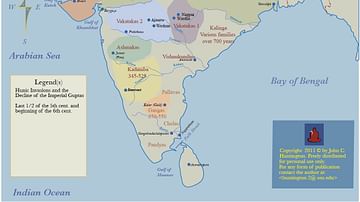
Definition
White Huns (Hephthalites)
The White Huns were a race of largely nomadic peoples who were a part of the Hunnic tribes of Central Asia. They ruled over an expansive area stretching from the Central Asian lands all the way to the Western Indian Subcontinent. Although...
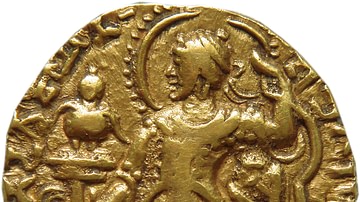
Image
Samudragupta Coin: Standard Type
This coin issued by Emperor Samudragupta (335/350 – 370/380 CE) of the Gupta dynasty shows him wearing a Scythian-style coat, trousers and cap and Indian-style necklace and earrings. He has a halo around his head. The standard shown in the...
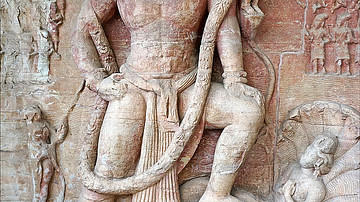
Image
Vishnu as Varaha, Udayagiri Caves
A sculpted panel at the Gupta-period (4th-6th century CE) caves of Udayagiri, Madhya Pradesh, India. The caves are rock-cut Hindu shrines and this panel shows Vishnu as the boar-headed incarnation Varaha. The god rises from the cosmic waters...
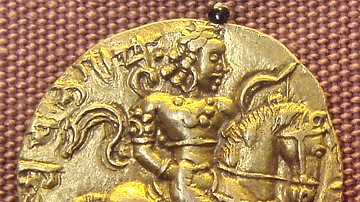
Image
Coin of Chandragupta II
Coin issued by Emperor Chandragupta II (c. 375-413/14) of the Gupta dynasty. Chandragupta is depicted wearing a waistcloth with a sash flying behind along with some jewellery (armlets, necklace and earrings). He holds a bow in his left hand...
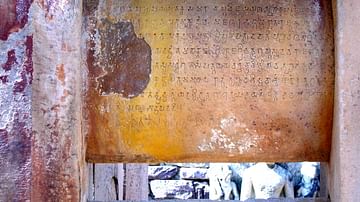
Image
Sanchi Inscription of Chandragupta II
This is the image of an inscription located at the great stupa at Sanchi, Madhya Pradesh, India. It belongs to the year 412-13 CE, in the period of the Gupta Emperor Chandragupta II (c. 375 - c. 414 CE) and mentions his name in the text...
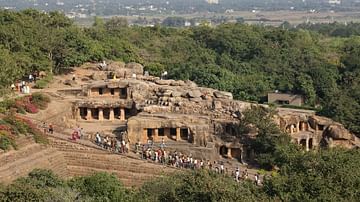
Image
Udayagiri Caves, Madhya Pradesh
The Udayagiri caves in Madhya Pradesh, India. The rock-cut caves were constructed in the early Gupta Period (4th century CE) and functioned as Hindu shrines.

Definition
Hindu Architecture
Hindu architecture evolved over the centuries from simple rock-cut cave shrines to massive and ornate temples which spread across the Indian sub-continent and beyond, forming a canonical style which is still adhered to today in modern Hindu...
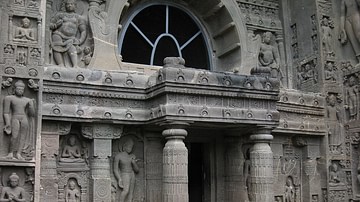
Definition
Ajanta
Approximately 67 miles (107 km) to the north of Aurangabad in the Indhyadri range of Western Ghats lie the caves of Ajanta. The 30 caves, famous for their early Buddhist temple architecture and many delicately drawn murals, are located in...
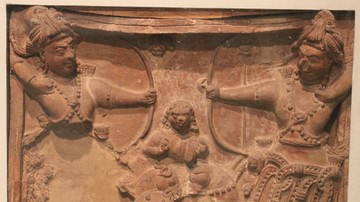
Definition
Ancient Indian Warfare
War was the chief means by which territory was annexed or rulers defeated in ancient India, which was divided into multiple kingdoms, republics and empires. Often one empire predominated or different empires co-existed. The Vedic literature...
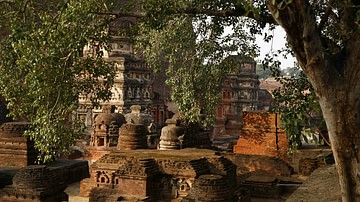
Definition
Harsha
Emperor Harshavardhana, better known as Harsha, lived from 590 to 647 CE and was the last ruler of the Vardhana Empire, the last great empire in ancient India before the Islamic Invasion. He ruled from 606 CE to 647 CE. After Harshavardhana's...